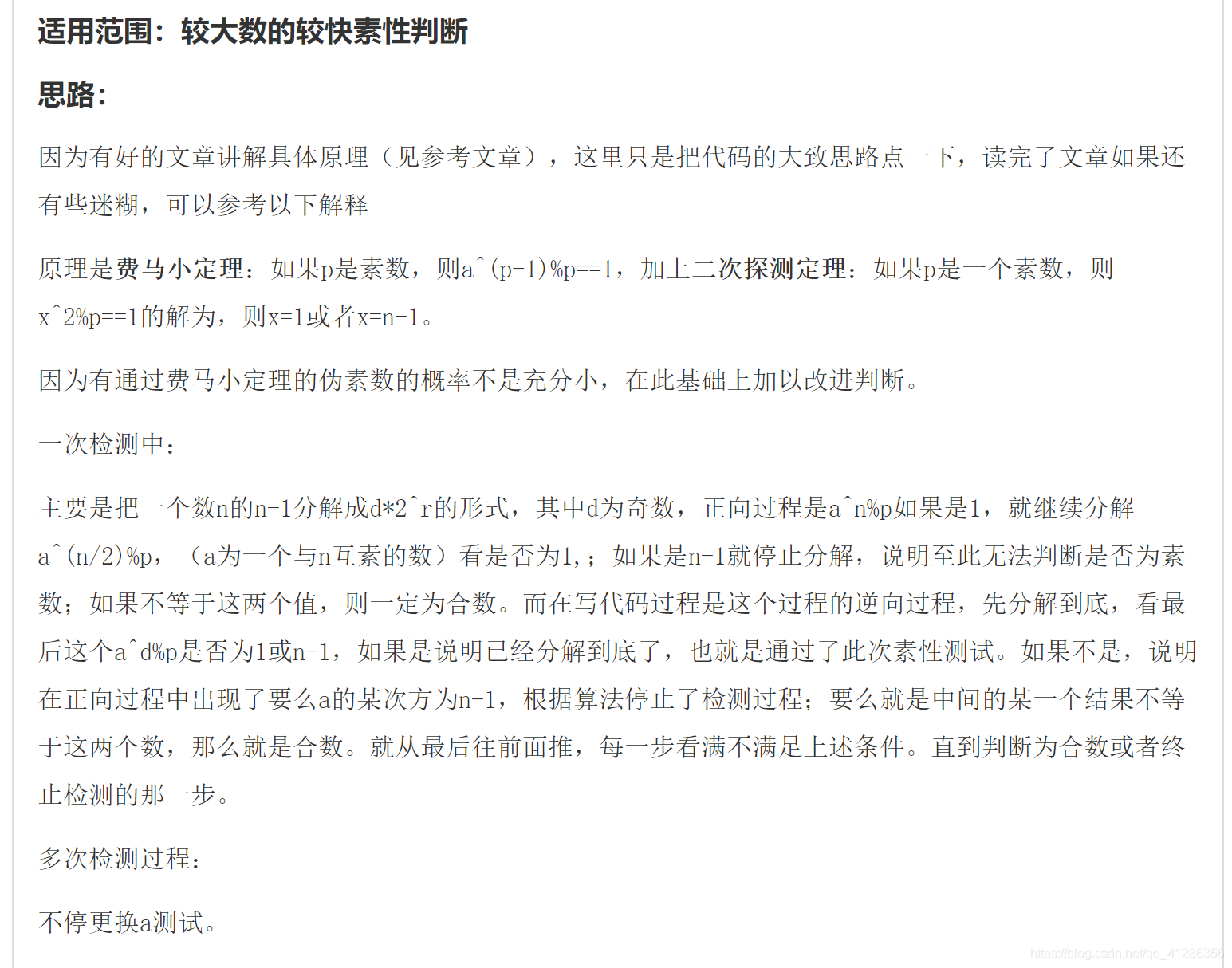先贴模板
#include<bits/stdc++.h>
using namespace std;
typedef long long ll;
#define IO ios::sync_with_stdio(false)
#define pb push_back
#define mk make_pair
const int N = 1e5+10;
const int mod = 1e9+7;
ll a, b;
const long long S=20;
ll mult_mod(ll a,ll b,ll mod)//快速乘
{
ll res=0;
for(;b;b>>=1){
if(b&1) res=(res+a)%mod;
a=(a+a)%mod;
}
return res;
}
ll pow_mod(ll a,ll b,ll mod)//快速幂
{
ll res=1;
a%=mod;
for(;b;b>>=1){
if(b&1) res=mult_mod(res,a,mod);
a=mult_mod(a,a,mod);
}
return res;
}
int check(ll a,ll n,ll x,ll t){
ll ret=pow_mod(a,x,n);//费马小定理 a^(p-1)%p==1
ll last=ret;
for(ll i=1;i<=t;i++){//二次检测定理 如果p是一个素数,则x^2%p==1的解为,则x=1或者x=n-1。
ret=mult_mod(ret,ret,n);
if(ret==1&&last!=1&&last!=n-1) return 1;
last=ret;
}
if(ret!=1) return 1;
return 0;
}
int Miller_Rabin(ll n){
if(n<2)return 0;
if(n==2)return 1;
if((n&1)==0) return 0;
ll x=n-1;
ll t=0;
while((x&1)==0){x>>=1;t++;}
for(ll i=0;i<S;i++){
ll a=rand()%(n-1)+1;
if(check(a,n,x,t)) return 0;
}
return 1;
}
int main(){
for(ll i=100000000000;i<=100000000100;++i){
if(Miller_Rabin(i)) printf("%lld 是素数\n",i);
else printf("%lld 不是素数\n",i);
}
}
根据概率论学 当一件事发生的概率 低于0.01% 时 这件事就不可能发生,即使在竞赛中倒了 ACM历史以来最大的霉运,出现了判断失误的情况 你就再交一次,总不会次次出现低于0.01%的事件吧,比买彩票中大奖、被闪电劈中的概率低多了。

